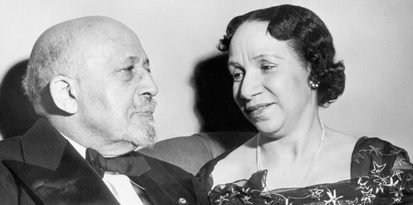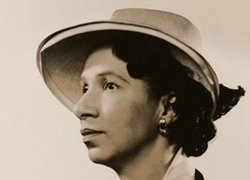In 1926, Graham moved to Paris, France, to study music composition at the Sorbonne where she met Africans and Afro-Caribbean people and introduced her to new music and cultures.
In 1931, Graham entered Oberlin College as an advanced student and, after earning her B.A. in 1934, went on to do graduate work in music, completing a master's degree in 1935. In 1936 she was appointed director of the Chicago Negro Unit of the Federal Theater Project, part of President Franklin D. Roosevelt's Works Progress Administration. She wrote musical scores, directed, and did additional associated work.
In the late 1940s, Graham became a member of Sojourners for Truth and Justice – an African-American organization working for global women's liberation.[1] Around the same time, she joined the American Communist Party
In 1951, she married W. E. B. Du Bois, the second marriage for both. She was 54 years old; he was 83. They later emigrated to Ghana, where they received citizenship in 1961 and he died in 1963. In 1967, she was forced to leave after a military-led coup d'état, and moved to Cairo, Egypt, where she continued writing.
Shirley Graham Du Bois died of breast cancer on March 27, 1977, aged 80, in Beijing, China. She died as a Tanzanian. She had moved from Ghana to Tanzania after Ghanaian president, Kwame Nkrumah, was overthrown on 24 February 1966, and became close to Tanzanian president, Julius Nyerere, and acquired Tanzanian citizenship.



